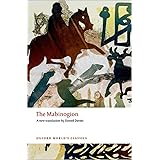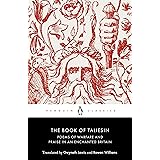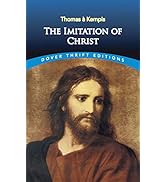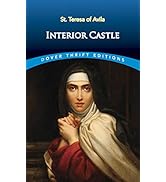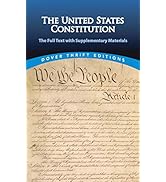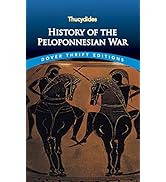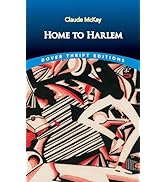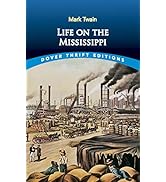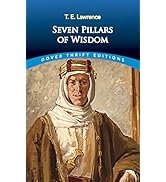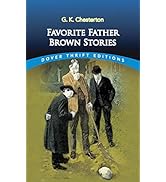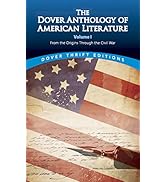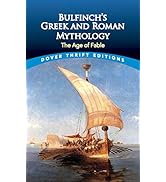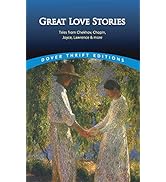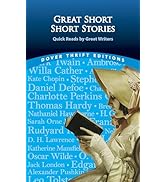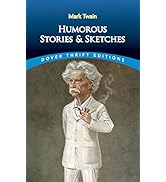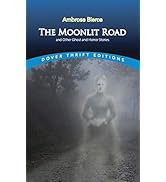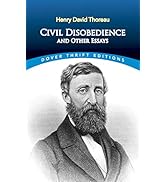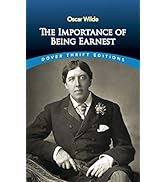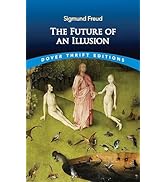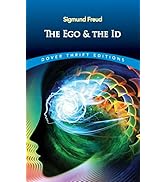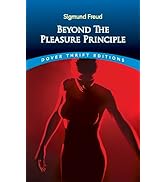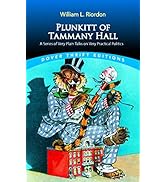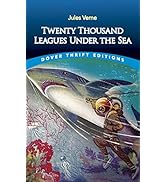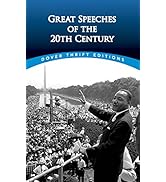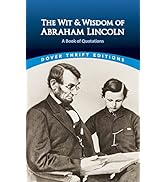
Enjoy fast, free delivery, exclusive deals, and award-winning movies & TV shows with Prime
Try Prime
and start saving today with fast, free delivery
Amazon Prime includes:
Fast, FREE Delivery is available to Prime members. To join, select "Try Amazon Prime and start saving today with Fast, FREE Delivery" below the Add to Cart button.
Amazon Prime members enjoy:- Cardmembers earn 5% Back at Amazon.com with a Prime Credit Card.
- Unlimited Free Two-Day Delivery
- Streaming of thousands of movies and TV shows with limited ads on Prime Video.
- A Kindle book to borrow for free each month - with no due dates
- Listen to over 2 million songs and hundreds of playlists
- Unlimited photo storage with anywhere access
Important: Your credit card will NOT be charged when you start your free trial or if you cancel during the trial period. If you're happy with Amazon Prime, do nothing. At the end of the free trial, your membership will automatically upgrade to a monthly membership.
Buy new:
$9.00$9.00
Ships from: Amazon.com Sold by: Amazon.com
Save with Used - Good
$1.36$1.36

Download the free Kindle app and start reading Kindle books instantly on your smartphone, tablet, or computer - no Kindle device required.
Read instantly on your browser with Kindle for Web.
Using your mobile phone camera - scan the code below and download the Kindle app.

OK
 Audible sample Sample
Audible sample Sample 


The Mabinogion (Dover Thrift Editions: Short Stories) Paperback – April 24, 1997
Purchase options and add-ons
Composed in a golden age of Celtic storytelling in the thirteenth century or earlier, this collection of 12 Welsh prose tales is a masterpiece of European literature. Though written down in the Middle Ages, these stories are thought by scholars to be probably much older, perhaps going back to the dawn of Celtic civilization.
They fall naturally into several groups: the Mabinogion (stories) proper, composed of the four tales of Pwyll, Branwen, Manawyddan, and Math; the two short pieces The Dream of Maxen Wledig and Lludd and Llevelys; the incomparable Kilhwch and Olwen, one of the earliest Arthurian tales in Welsh; The Dream of Rhonabwy, a romantic look back to the heroic age of Britain; and the three Arthurian romances proper: The Lady of the Fountain, Peredur the Son of Evrawc, and Geraint the Son of Erbin, with their abundant evidence of Norman-French influences. Also included is Lady Guest's translation of Taliesin, the story of the famous bard. Destiny, magic, chance, knightly feats of arms, love, and betrayal — all are here in these ancient, beautifully crafted stories, sure to delight scholars, students, general readers, and any lover of myth and legend.
- Print length224 pages
- LanguageEnglish
- PublisherDover Publications
- Publication dateApril 24, 1997
- Reading age14 years and up
- Dimensions5.15 x 0.62 x 8.25 inches
- ISBN-109780486295411
- ISBN-13978-0486295411
The Amazon Book Review
Book recommendations, author interviews, editors' picks, and more. Read it now
Customers who viewed this item also viewed
From the brand

-

Debuting in 1990, the Thrift Editions library of classic literature is a top choice for teachers, students, librarians, and recreational readers around the world. Dover’s longstanding mission of exceptional value has consistently offered excellence in classic fiction, nonfiction, plays, and poetry.
Dover Thrift Editions are low priced, compact (5"x8"), complete and unabridged.
-
-
Are there any collections of stories or poetry in the Dover Thrift Editions?
In addition to single title books, Dover offers books of anthologies in fiction, non-fiction and poetry. Check out our Thrift Editions of short stories, literary collections, poetry, gothic and horror, SciFi/Fantasy, crime/mystery/thrillers and more. Happy Reading!
What formats are the Thrift Editions available in?
All are available in an easy to carry paperback version and most titles are available for the Kindle e-reader.
-
-
-
-
-
-
-
-
-

-
-
-
-
-
-
-
Product details
- ASIN : 0486295419
- Publisher : Dover Publications (April 24, 1997)
- Language : English
- Paperback : 224 pages
- ISBN-10 : 9780486295411
- ISBN-13 : 978-0486295411
- Reading age : 14 years and up
- Item Weight : 5.6 ounces
- Dimensions : 5.15 x 0.62 x 8.25 inches
- Best Sellers Rank: #2,180,301 in Books (See Top 100 in Books)
- #16,315 in Folklore (Books)
- #24,740 in Contemporary Literature & Fiction
- #44,402 in Classic Literature & Fiction
- Customer Reviews:
About the authors

Discover more of the author’s books, see similar authors, read author blogs and more

Alan Lee (born 20 August 1947) is an English book illustrator and movie conceptual designer. He was born in Middlesex, England, and studied at the Ealing School of Art.
Bio from Wikipedia, the free encyclopedia.
Customer reviews
Customer Reviews, including Product Star Ratings help customers to learn more about the product and decide whether it is the right product for them.
To calculate the overall star rating and percentage breakdown by star, we don’t use a simple average. Instead, our system considers things like how recent a review is and if the reviewer bought the item on Amazon. It also analyzed reviews to verify trustworthiness.
Learn more how customers reviews work on Amazon-
Top reviews
Top reviews from the United States
There was a problem filtering reviews right now. Please try again later.
She was not the first translator of some of the stories, and she had assistance, but, considering that she was starting from learning Welsh to begin with, her industry is impressive, and the literary success of her project well deserved -- Tennyson was only one of her admirers. The stories she translated have, with minor variations, become a canonical set: she used pretty much every example of early secular Welsh narrative that wasn't either plainly historical or clearly a straightforward translation from another language. Her version was, and is, widely read, and has helped form a vision of Welsh (and generally Celtic) literature of considerable influence -- not all of it good.
Her husband's death, and her involvement in managing his business, another extraordinary effort for a proper early-Victorian Lady, took Charlotte Guest away from medieval Welsh studies; from the Middle Ages to the Industrial Revolution. After her remarriage to Charles Schreiber (her son's tutor, another interesting story), she turned her energies in a third direction, the collection of ceramics. (To my considerable annoyance, the modern editor of her journals considered this of far, far more importance than either the iron industry or that Welsh literature stuff, and omitted much of both to make room for descriptions of buying fine porcelain ... .) She then went on to become on expert on fans, as well. Much more ladylike, I'm sure; except that she also became an authority on their construction. A really remarkable person, deserving of respect.
This is relevant because, although she lived until 1895, her work on medieval Welsh effectively came to an end a half-century before, and was that of a devoted amateur even then. The translation was not only based on poorly-edited texts, imperfectly understood: in accordance with the practice of the time, she omitted, or at least veiled in obscure phrasing, whatever she found morally offensive, and cut or expanded descriptions, and, generally produced a work that, except on the level of graceful writing, has not stood up well.
Add that early nineteenth-century Welsh studies were plagued by the hand of Iolo Morganwg, who combined real learning with a taste for fraud, and you will realize that what she says may be not only obsolete, but a good-faith repetition of falsified texts, or complete fabrications. (For example, Iolo wrote two sets of Welsh Triads to go along with the real ones; his versions are still being quoted by the unaware, the careless, and those who can't bear to give up a convenient lie.)
However, Charlotte Guest's "Mabinogion" is long out of copyright, which seems to guarantee it a place in some publishers' lists.
Editions which include at least some of the notes she provided still have some value as representing early nineteenth-century knowledge of Welsh literature in the English-speaking world. The 1906 Everyman's Library edition is an example of this approach; a small (mass-market paperback size) hardcover, based on a one-volume edition of 1877, it was almost 450 pages long. In fact, a full, critical edition of her work would probably be of great importance to Victorian studies.
The edition illustrated by Alan Lee reportedly includes Guest's notes; if so, it must be a striking combination of modern fantasy art and useful resource. Stories-only editions of the Guest translation, however inexpensive, are of much less, even dubious, value. The reader may think, "so this is what it is like," when it isn't.
Still, a searchable digital text is an enormous convenience, so long as it isn't mistaken for something definitive, or even very reliable. And a convenient paperback, like the Dover Thrift Edition, is probably a great convenience for readers of Tennyson, and a lot of early twentieth-century Celtic and Arthurian fiction (although even for this, her notes are sometimes of equal or greater importance).
For those with any real interest in the subject, three other translations are available. Gwyn Jones and Thomas Jones translated "The Mabinogion" in the 1940s, and their version replaced Guest's in the Everyman's Library series in 1949. After several revisions, it remains in print, in hardcover (Knopf) and paperback (Everyman Paperback Classics). I have reviewed the paperback edition of this at some length.
More recent is Jeffrey Gantz's "The Mabinogion" for Penguin Classics (1976), which is more modern in language. Like Jones and Jones (and a now-unavailable 1929 translation), Gantz omits one of Guest's selections, "The Tale of Taliesin." He also departs from the usual spelling of some characters' names, for reasons which do not seem entirely clear. As prose, it doesn't seem to me close to Jones and Jones, and well behind Guest, but some people seem to prefer it.
Finally, we come to "The Mabinogi, and Other Medieval Welsh Tales," edited and translated by Patrick K. Ford (1977), which drops the common title, and with it three heavily French-influenced tales, and two other stories with debatable features, but restores "Taliesin," re-edited from manuscripts not subjected to Iolo Morganwg's meddling; in his version, it appears in two parts, "The Tale of Gwion Bach" and "The Tale of Taliesin." He also includes a translation of "Cad Goddeu," or "The Battle of the Trees," an unsatisfactory version of which Charlotte Guest had used in her notes. Ford's introductions are clear and informative; and he was acutely aware of the modern literary uses of the stories. (I know this last because I was taking a course from him while the translation was in draft.) The translation doesn't try to make a medieval text sound more modern than it is, but it doesn't try to make it quaint or archaic, either.
With any of these available to you, Charlotte Guest's translation will make an interesting supplement. One thing it doesn't lack is charm.
These tales are the basis for a large number of initiation systems using the Welsh spiritual and mythological philosophy.
If you actually study the book, instead of looking for the "good parts" you will find a basic initiation ritual and magickal practice.
Good luck, it actually takes an intelligent person with patience to find the jewels.
Maybe hundreds of years ago it was entertaining to read about having servants disarray you for bed (undress) - and feasting after conquering your neighbors, but not so much now, at least - in this style.
Top reviews from other countries
It first came to general literary prominence in the mid 19th century, when Lady Charlotte Guest published her translation of 11 medieval Welsh folk tales under the title The Mabinogion.
The tales, which are outwardly concerned with the lives of various Welsh royal families - figures who represent the gods of an older, pre-Christian mythological order - are themselves much older in origin.
Preserved in written form in the White Book of Rhydderch (1300-1325) and the Red Book of Hergest (1375-1425), portions of the stories were written as early as the second half of the 11th century, and some stories are much older still.
It is from this older, oral tradition of story telling that many of the fantastic and supernatural elements of the tales have come.
Ironically the title, The Mabinogion, is a relatively modern one, coined mistakenly by Lady Charlotte Guest herself. The word 'mabinogion', which she assumed was the plural form of 'mabinogi', appears only once in the manuscripts she translated and is commonly dismissed as a transcription error.
'Mabinogi', derived from the word 'mab', originally meant 'boyhood' or 'youth' but gradually came to mean 'tale of a hero's boyhood' and eventually, simply, 'a tale'.
It's these first four heroic 'tales', or the four 'branches' of Pwyll, Branwen, Manawydan, and Math, which make up The Mabinogi(on) proper.
A single character, Pryderi links all four branches. In the first tale he's born and fostered, inherits a kingdom and marries. In the second he's scarcely mentioned, but in the third he's imprisoned by enchantment and then released. In the fourth he falls in battle.
The tales themselves are concerned with the themes of fall and redemption, loyalty, marriage, love, fidelity, the wronged wife, and incest.
They're set in a bizarre and magical landscape which corresponds geographically to the western coast of south and north Wales, and are full of white horses that appear magically, giants, beautiful, intelligent women and heroic men.
The title, The Mabinogion, is also used today to describe the other seven stories in Lady Charlotte Guest's collection: The Dream of Macsen Wledig, which is based on the legend of Emperor Maximus; Llud and Llefelys, a story full of fairy tale elements; Culhwch and Olwen, the earliest known Arthurian romance in Welsh; The Dream of Rhonabwy, a witty meditation on ancient Britain's heroic tradition; and three further Arthurian romances, The Lady of the Fountain, Peredur and Geraint and Enid. A 12th story, Taliesin, translated from a later manuscript, is included in some collections.
Reviewed in the United Kingdom on May 23, 2016
It first came to general literary prominence in the mid 19th century, when Lady Charlotte Guest published her translation of 11 medieval Welsh folk tales under the title The Mabinogion.
The tales, which are outwardly concerned with the lives of various Welsh royal families - figures who represent the gods of an older, pre-Christian mythological order - are themselves much older in origin.
Preserved in written form in the White Book of Rhydderch (1300-1325) and the Red Book of Hergest (1375-1425), portions of the stories were written as early as the second half of the 11th century, and some stories are much older still.
It is from this older, oral tradition of story telling that many of the fantastic and supernatural elements of the tales have come.
Ironically the title, The Mabinogion, is a relatively modern one, coined mistakenly by Lady Charlotte Guest herself. The word 'mabinogion', which she assumed was the plural form of 'mabinogi', appears only once in the manuscripts she translated and is commonly dismissed as a transcription error.
'Mabinogi', derived from the word 'mab', originally meant 'boyhood' or 'youth' but gradually came to mean 'tale of a hero's boyhood' and eventually, simply, 'a tale'.
It's these first four heroic 'tales', or the four 'branches' of Pwyll, Branwen, Manawydan, and Math, which make up The Mabinogi(on) proper.
A single character, Pryderi links all four branches. In the first tale he's born and fostered, inherits a kingdom and marries. In the second he's scarcely mentioned, but in the third he's imprisoned by enchantment and then released. In the fourth he falls in battle.
The tales themselves are concerned with the themes of fall and redemption, loyalty, marriage, love, fidelity, the wronged wife, and incest.
They're set in a bizarre and magical landscape which corresponds geographically to the western coast of south and north Wales, and are full of white horses that appear magically, giants, beautiful, intelligent women and heroic men.
The title, The Mabinogion, is also used today to describe the other seven stories in Lady Charlotte Guest's collection: The Dream of Macsen Wledig, which is based on the legend of Emperor Maximus; Llud and Llefelys, a story full of fairy tale elements; Culhwch and Olwen, the earliest known Arthurian romance in Welsh; The Dream of Rhonabwy, a witty meditation on ancient Britain's heroic tradition; and three further Arthurian romances, The Lady of the Fountain, Peredur and Geraint and Enid. A 12th story, Taliesin, translated from a later manuscript, is included in some collections.







